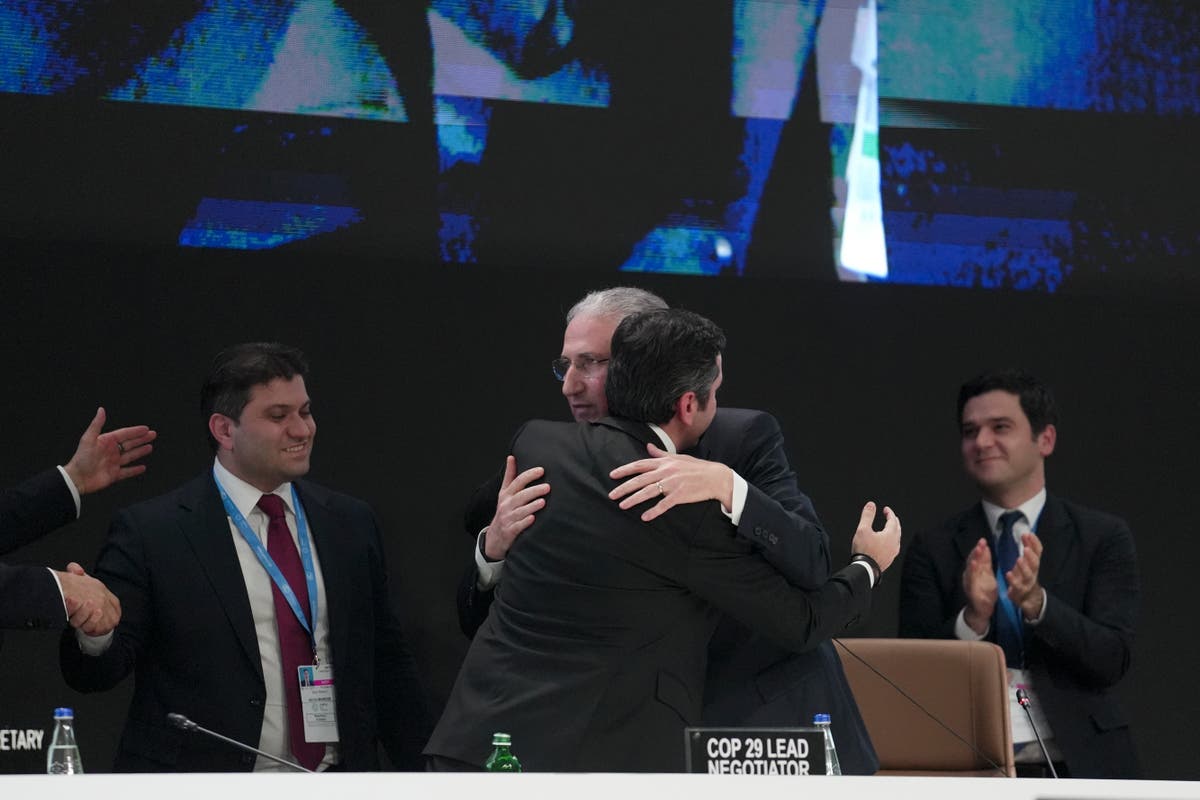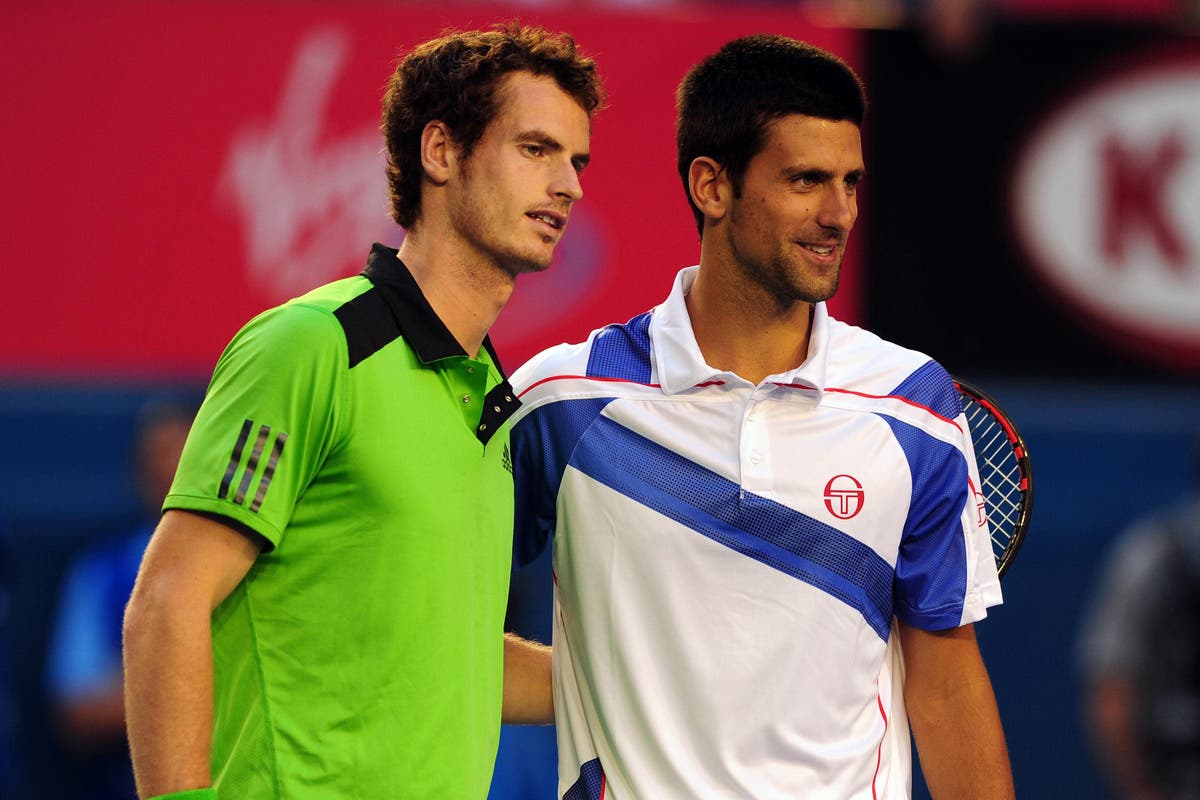A last-minute $300billion climate finance deal has been secured at Cop29 after a dramatic day of prolonged negotiations, which saw walkouts by vulnerable nations and protests echoing through the corridors.
Countries agreed to the annual finance target to help poorer countries deal with the impacts of climate change, with rich countries leading the payments, according to a hard fought agreement clinched at the United Nations summit in Azerbaijan on Sunday, which saved the talks from collapse.
The new goal is intended to replace developed countries’ previous commitment to provide $100billion per year in climate finance for poorer nations by 2020. That goal was met two years late, in 2022, and expires in 2025.
The fresh agreement was criticised by developing nations, who called it insufficient, but UN climate chief Simon Steill hailed it as an insurance policy for humanity.
“It has been a difficult journey, but we’ve delivered a deal,” Mr Steill said after the agreement was finalised.

“This deal will keep the clean energy boom growing and protect billions of lives. It will help all countries to share in the huge benefits of bold climate action: more jobs, stronger growth, cheaper and cleaner energy for all.
“But like any insurance policy, it only works if the premiums are paid in full and on time.”
The COP29 climate conference in the Azerbaijan capital Baku had been due to finish on Friday, but ran into overtime as negotiators from nearly 200 countries struggled to reach consensus on the climate funding plan for the next decade.
At one point delegates from poor and small island nations walked out in frustration over what they called a lack of inclusion, worried that fossil fuel producing countries were seeking to water down aspects of the deal.
The summit cut to the heart of the debate over financial responsibility of industrialised countries – whose historic use of fossil fuels have caused the bulk of greenhouse gas emissions – to compensate others for worsening damage wrought by climate change.
It also laid bare divisions between wealthy governments constrained by tight domestic budgets and developing nations reeling from costs of storms, floods and droughts.
On Saturday evening, countries also agreed on rules for a global market to buy and sell carbon credits that proponents say could mobilise billions more dollars into new projects to help fight global warming, from reforestation to deployment of clean energy technologies.
Countries are seeking financing to deliver on the Paris Agreement goal of limiting global temperature rise to 1.5C (2.7F) above pre-industrial levels – beyond which catastrophic climate impacts could occur.
The world is currently on track for as much as 3.1C (5.6F) of warming by the end of this century, according to the 2024 UN Emissions Gap report, with global greenhouse gas emissions and fossil fuels use continuing to rise.
More follows on this breaking news story…





